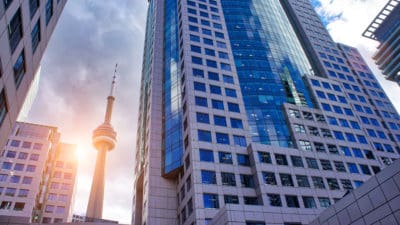The pandemic-plagued year of 2020 is behind us, and the page has turned to a new year. However, COVID-19 continues to be a very uncomfortable thorn in the side of the global economy and our way of life. There are a handful of vaccines that could put an end to the pandemic over the coming months, and everyone seems hopeful.
When investors become hopeful, they begin investing in companies. While that is a good thing, because it can help stock markets climb, it could also lead to a decline that equals the rise. We might see a huge market crash hit the economy harder than the pandemic-fueled bearish market in February and March 2020.
S&P 500 hitting record-breaking figures
The advent of a COVID-19 vaccine combined with the approval of Donald Trump for a coronavirus relief package for American citizens led to a massive boost for the S&P500 Index. The US$2.3 trillion COVID-19 relief and government funding package allowed our neighbors to breathe a massive sigh of relief, boosting investor morale.
U.S. investors cheered the package, and it restored their optimism, sending global stocks to a record in December, despite an escalation in the pandemic. The U.S. government effectively approved a stimulus package that would pay out US$2,000 to its citizens, similar to the Canada Emergency Response Benefit (CERB).
The positivity generated by this move will not only impact the U.S. stock market. It is a precursor to bullish sentiments worldwide since other countries will also benefit from the growing U.S. markets. Analysts at JPMorgan are hopeful that the S&P500 could soar as high as 4,500 in 2021.
The greater the rise, the harder the fall
Despite all the positivity that could possibly send stock markets soaring high in 2021, there is a catch. The housing market in Canada is in a growing bubble, and there are chances of another stock market crash.
Warren Buffett might not have explicitly stated it, but his recent investment decisions could be predicting another market crash. It is likely that he has held onto his cash pile and invested in gold because he knows something worse is on the way.
Fears of a stock market crash were already high as markets struck all-time highs in 2019. However, the February-March dip was not due to the previous underlying factors. Those problems still exist in a state of limbo.
The rising debt crisis, expiring mortgage deferrals, and overall weakening economic circumstances could trigger a market crash worse than what we saw last year. Unfortunately, the next market crash might not be over in a matter of months like the previous one.
Recession-proof your portfolio
What do you do when you fear a recession coming soon? You protect your capital by parking it somewhere a market crash cannot devalue your net worth. Storing your money under a mattress might seem like a good choice, but investing it in defensive assets like Fortis (TSX:FTS)(NYSE:FTS) could help you increase the value of your capital while protecting you from the market crash.
Fortis is a non-cyclical stock that can provide you with reliable returns, regardless of the economic circumstances. Fortis is a utility provider that runs a very stable business. Almost all of its revenues come from highly regulated contracts. It means that Fortis already knows how much it will make in a year, no matter what happens to the economy.
Its predictable cash flows allow Fortis to comfortably fund its growth and the growing dividend payouts to its shareholders. Its stability makes it highly resistant to stock market movements.
Foolish takeaway
Fortis is trading for $51.24 per share at writing, and it is paying its shareholders at a 3.94% dividend yield. The defensive stock might not provide you much excitement when the stock markets are bullish. However, it can protect your capital while growing your account balance through its reliable dividend payouts in the long run. Allocating your capital to defensive stocks like Fortis could be an excellent way to weather the storm during the next market crash.







